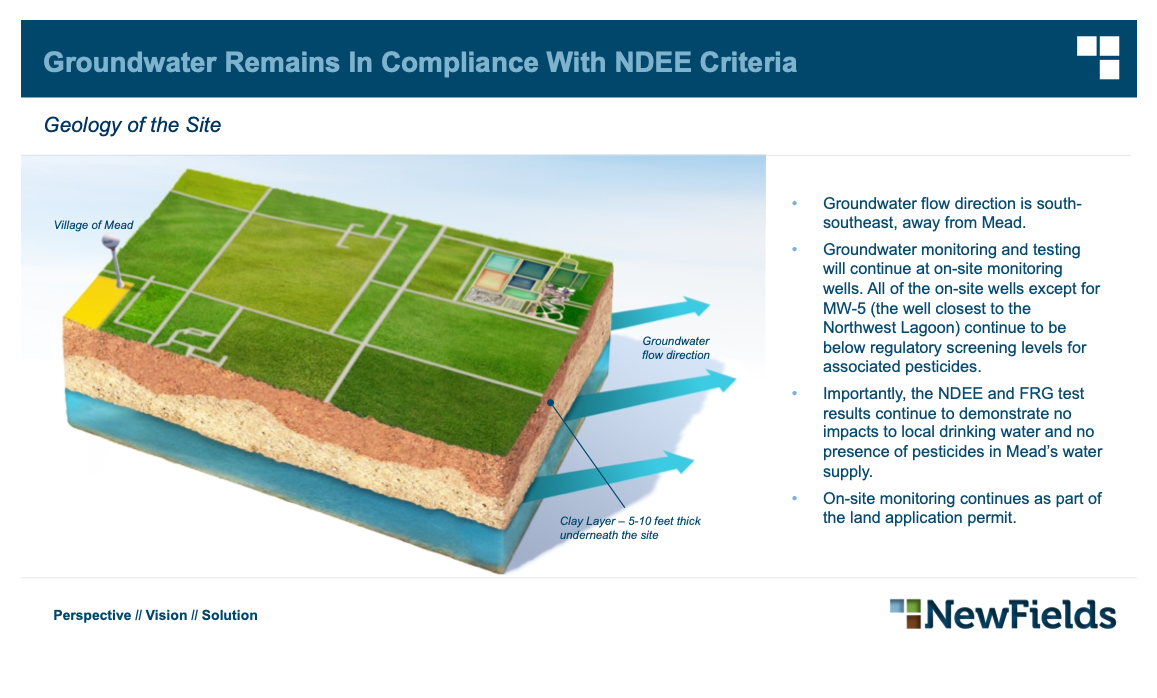The below information has been provided in an effort to help keep the community informed on a more frequent basis about progress at the AltEn site.
Ever since AltEn ceased operations at its facility in Mead in 2021, the AltEn Facility Response Group (FRG) has been voluntarily working under the guidance of the Nebraska Department of Environment and Energy (NDEE) to stabilize the AltEn site and develop a Remedial Action Plan (RAP) for the site. The FRG’s top priorities have been and continue to be to help ensure the safety of the surrounding community and environment. To-date, there has been no evidence of impacts to local drinking water.
The FRG is working diligently with the NDEE to identify the most effective and safest methods to address the current environmental conditions on the AltEn site. The remedial action plans (RAP) will recommend remediation for components remaining on-site, including wastewater, sludge, and wet cake.
MARCH 10, 2023
Solid Waste RAP Update
The FRG has been working diligently to collect data and information on potential options for the solids remedial action plan (RAP).
The FRG is utilizing a robust criteria method to determine its final recommendation for the solids on-site. Two specific criteria – which follow EPA protocol – must be met to consider a remedial option feasible and worth further investigation. Those two criteria are:
- Overall protectiveness of human health and the environment
- Regulatory compliance
After it is determined a remedial option would meet NDEE’s regulatory requirements and would be protective of human health and the environment, the FRG will further evaluate the method with the following balancing criteria.
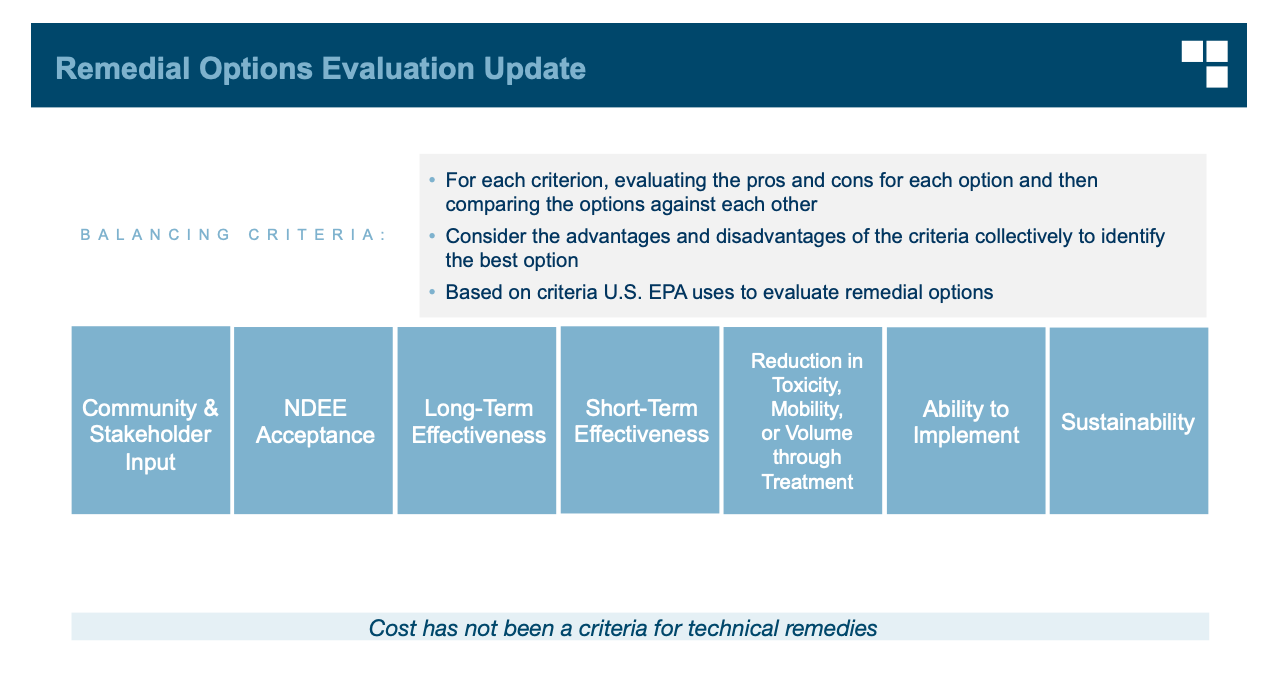
Taking the above criteria into consideration, with emphasis on community input and ability to implement, the FRG is proposing a pilot program to better understand the many variables at play with off-site landfilling. The pilot program will address solidification and off-site transportation and disposal, including the number of truckloads per day, potential impact on communities along the transportation route, and landfill contractor coordination.
Regardless of the recommendation put forth in the solids RAP, long term care will be a mandatory part of any remedy for it to be approved by NDEE. Depending on the remedy, the FRG will work with the NDEE to decide how to responsibly manage the process.
Solids Waste Pilot Program Details
Several steps must occur before the FRG is able to begin off-site transportation. Equipment and materials must be obtained and field procedures for safely implementing the work must be developed. The pilot will specifically address stormwater management Best Management Practices (BMPs), dust and odor control equipment, truck tire and surface cleanliness, as well as materials handling and solidification optimization.
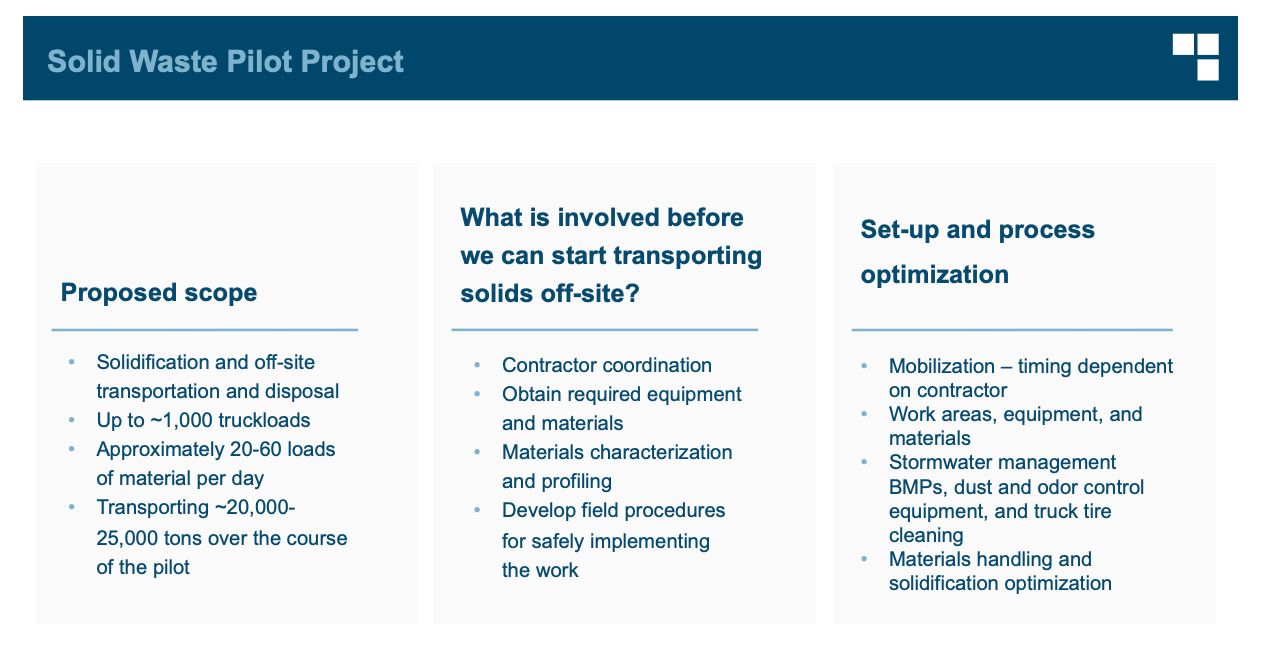
We are currently engaging with the contractor on the initiation and execution of the pilot program.
Solid Waste Pilot Implementation & Evaluation
Details of the implementation of the program as well as information the FRG is trying to learn are below.
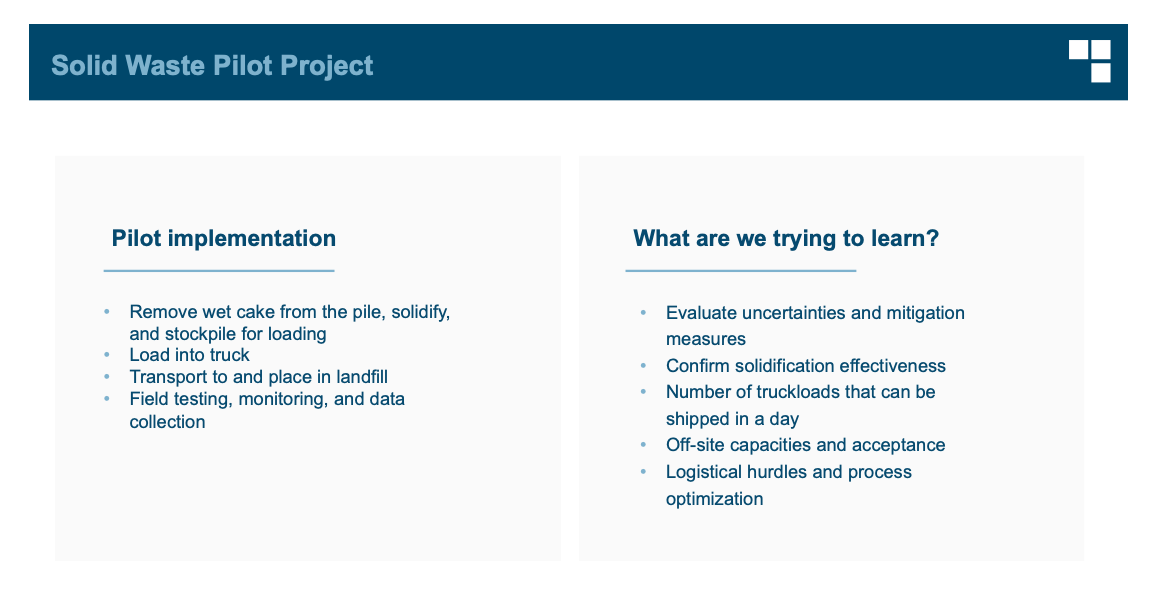
Solid Waste RAP Ongoing Studies
The vast majority of the wet cake is made up of organic materials and water. Pesticides make up only 0.025% of the overall wet cake.
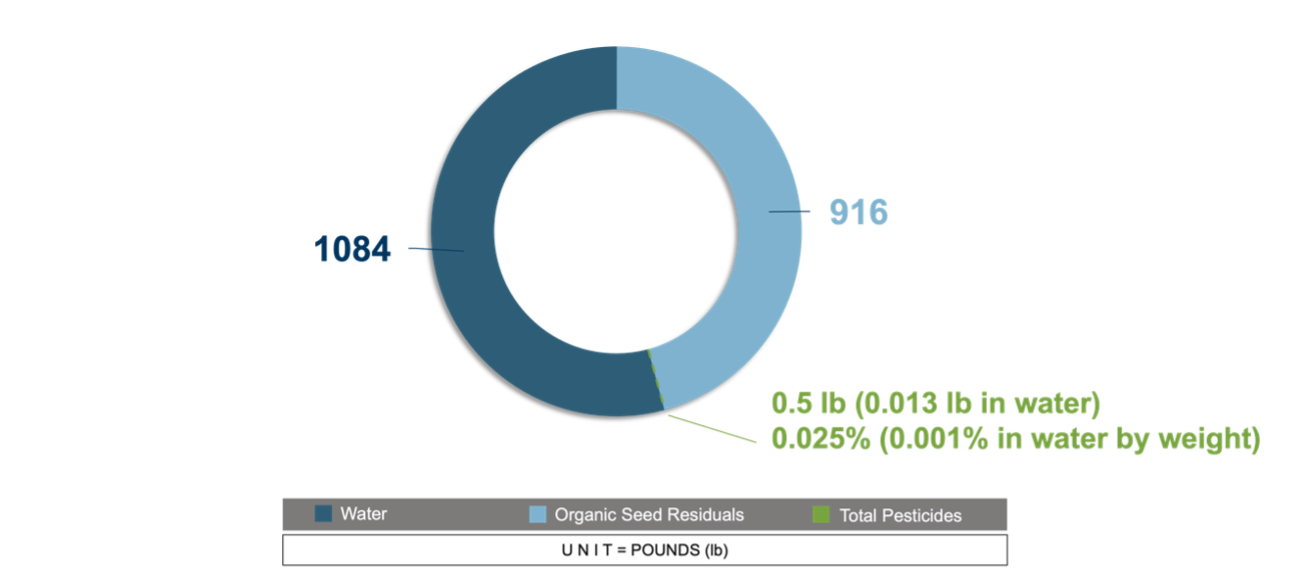
A total of 54 pesticides were tested and 23 were detected in the wet cake solids. All of the detected amounts were below protective screening values.
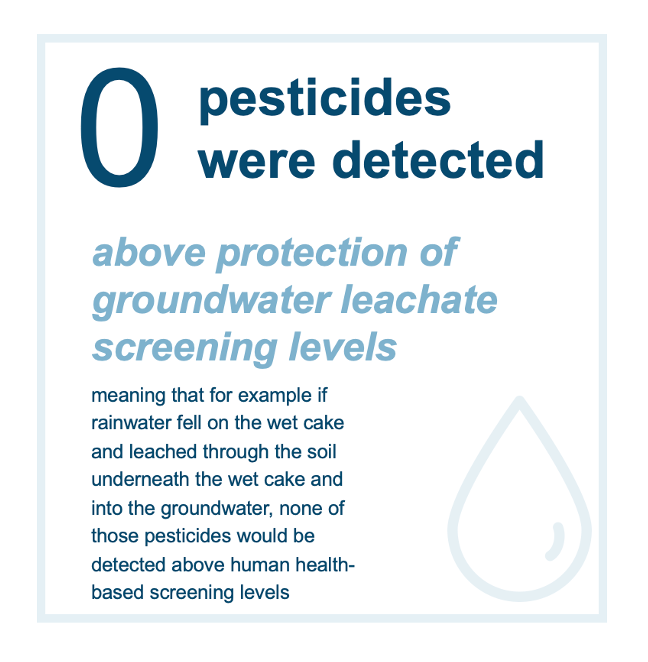
Water RAP Implementation Update
The water RAP is well underway. Below is a timeline that shows current progress and next steps for treating the estimated 100 million gallons of lagoon water plus rainwater. Water treatment activities will resume this summer.
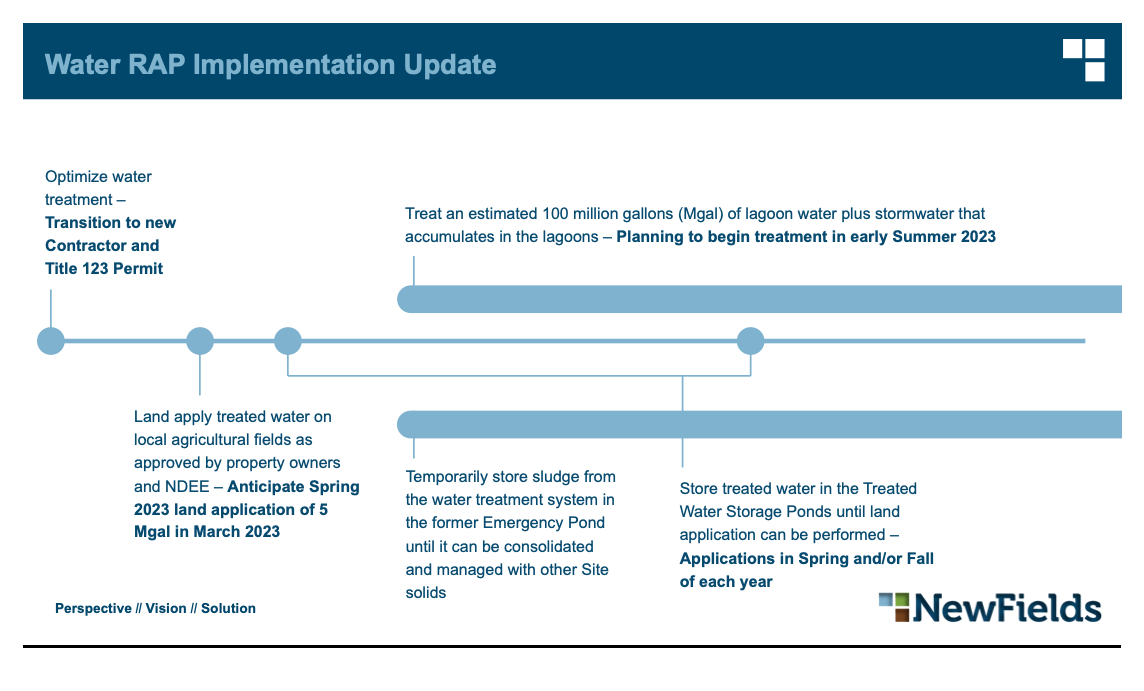
Groundwater Monitoring
Groundwater monitoring and testing will continue at on-site monitoring wells.
Importantly, the NDEE and FRG test results continue to demonstrate no impacts to local drinking water and no presence of pesticides in Mead’s water supply.
